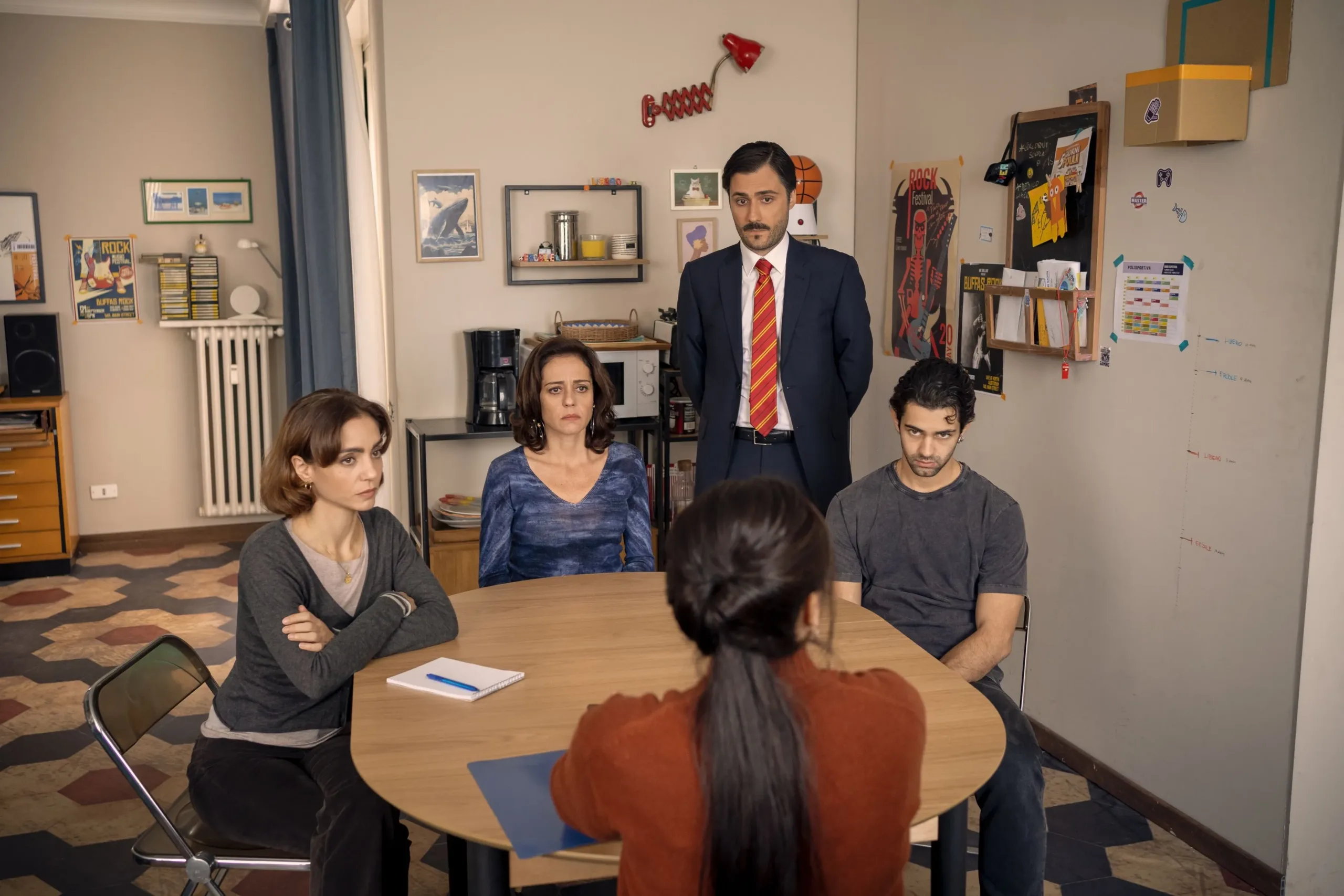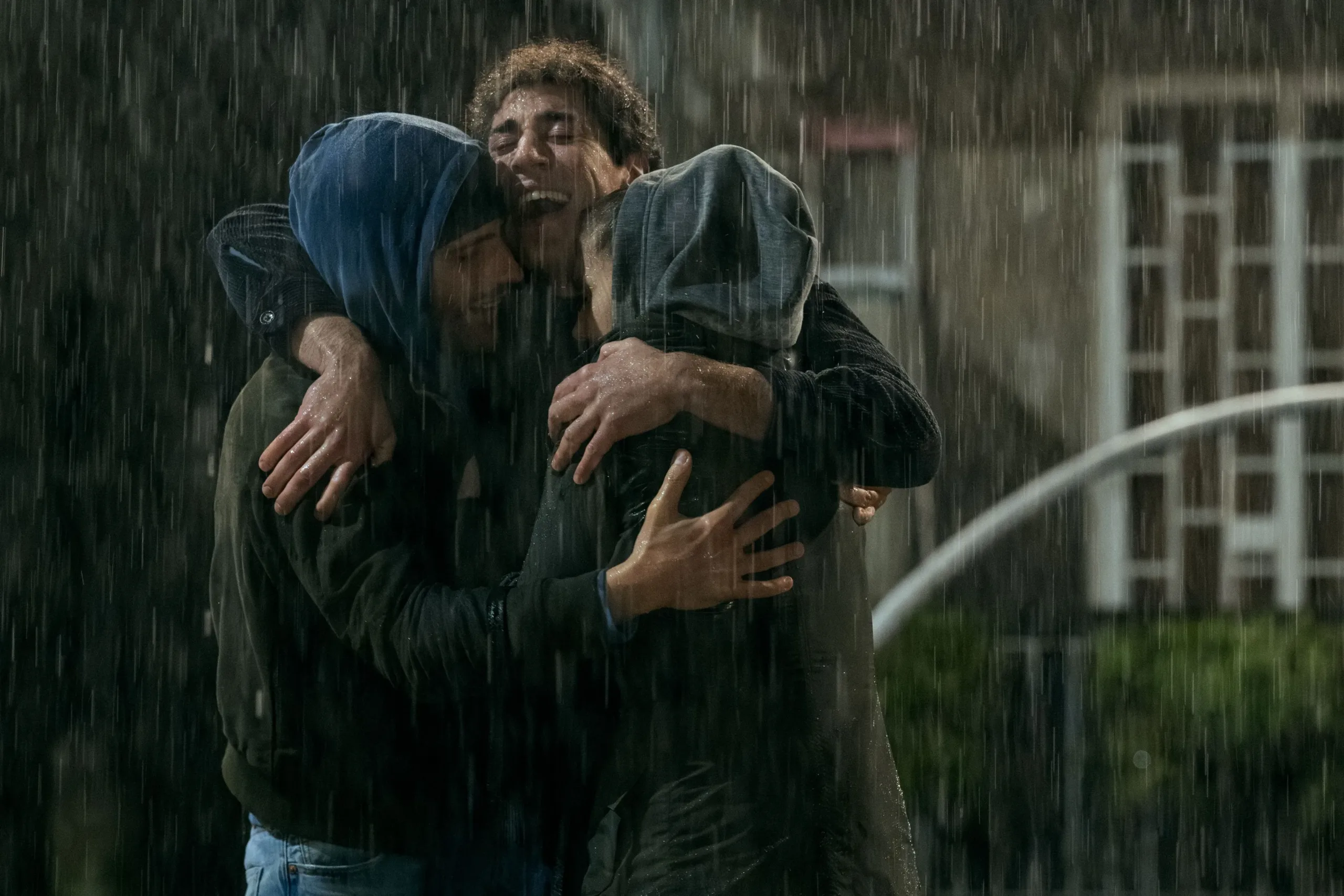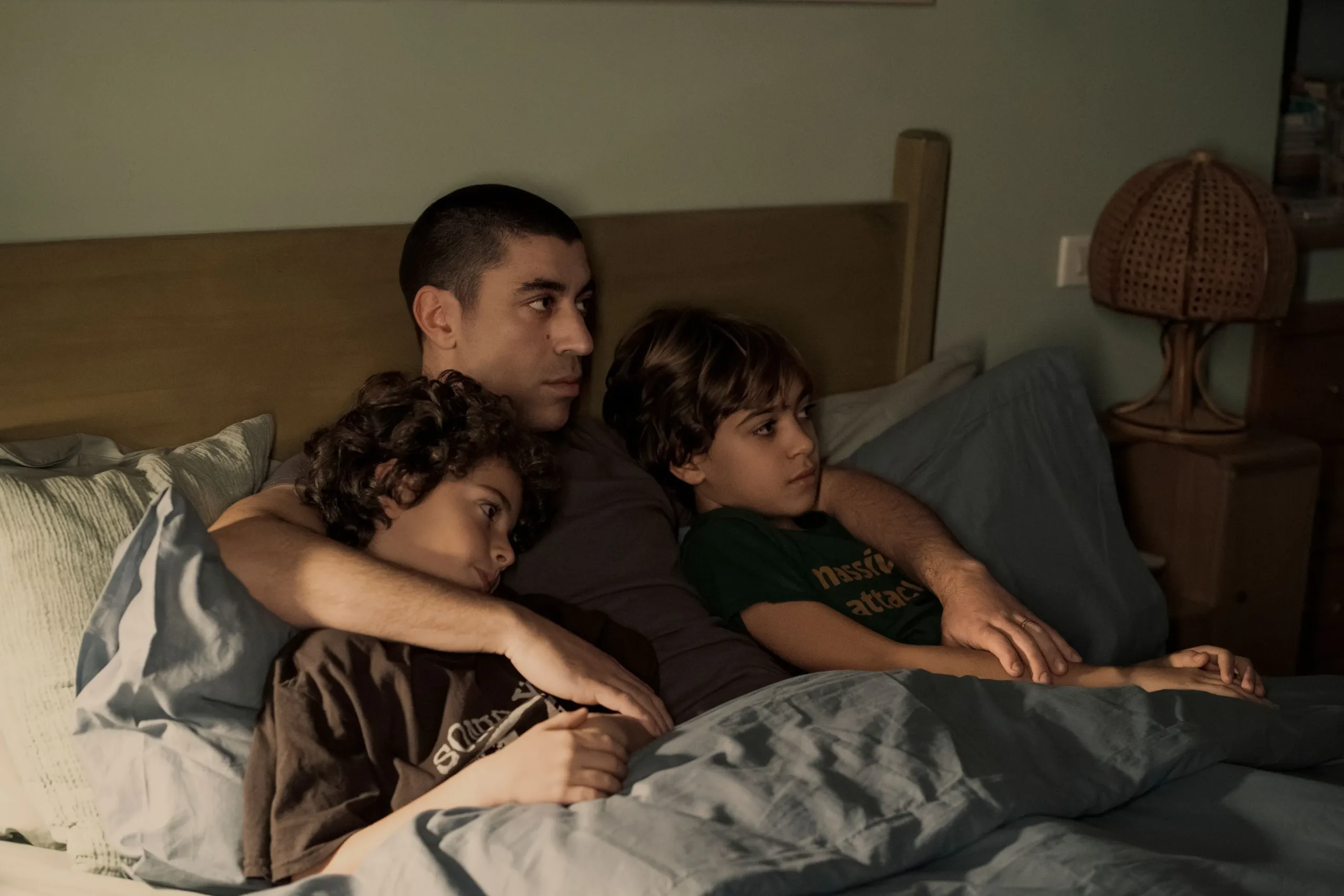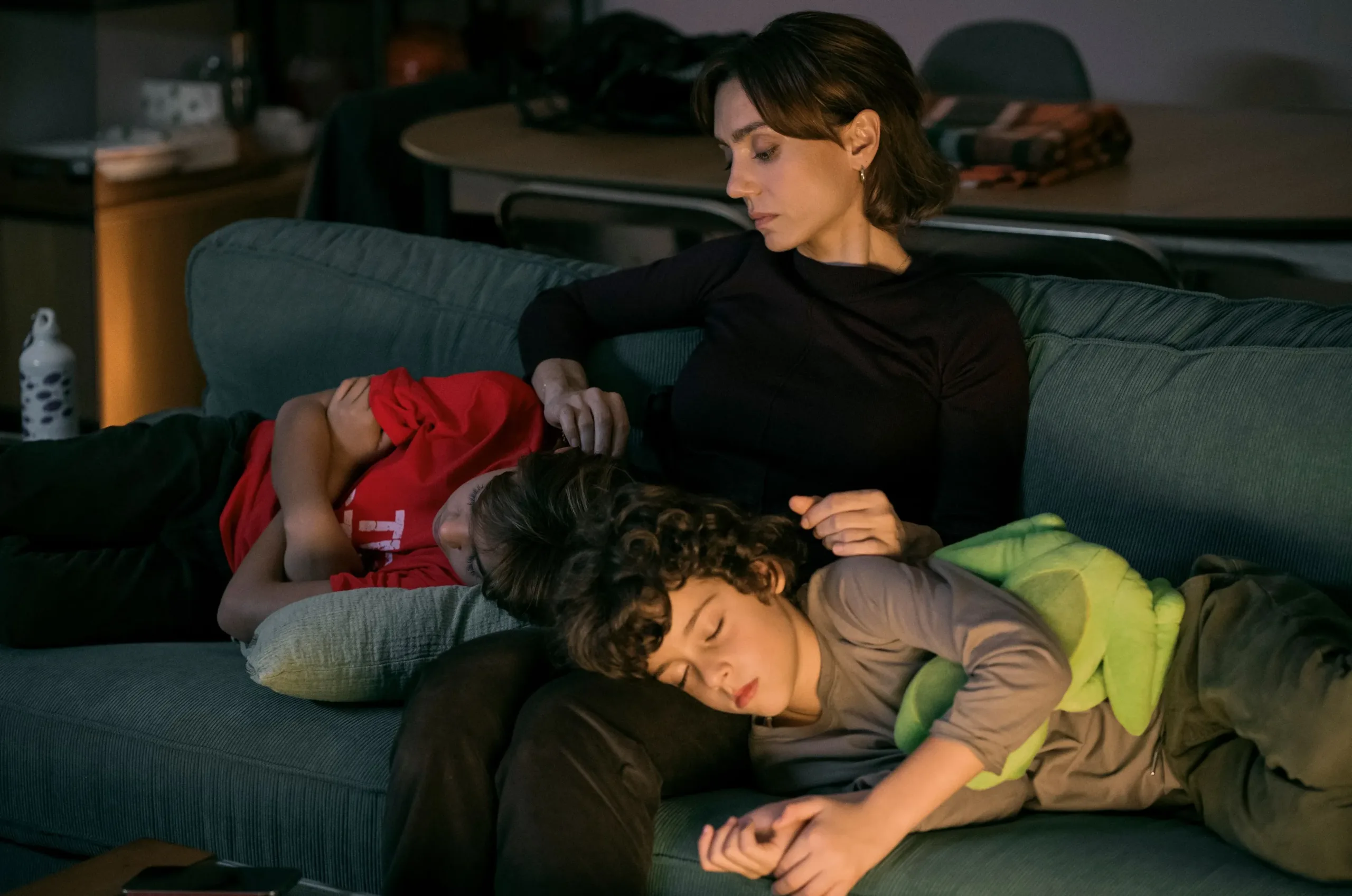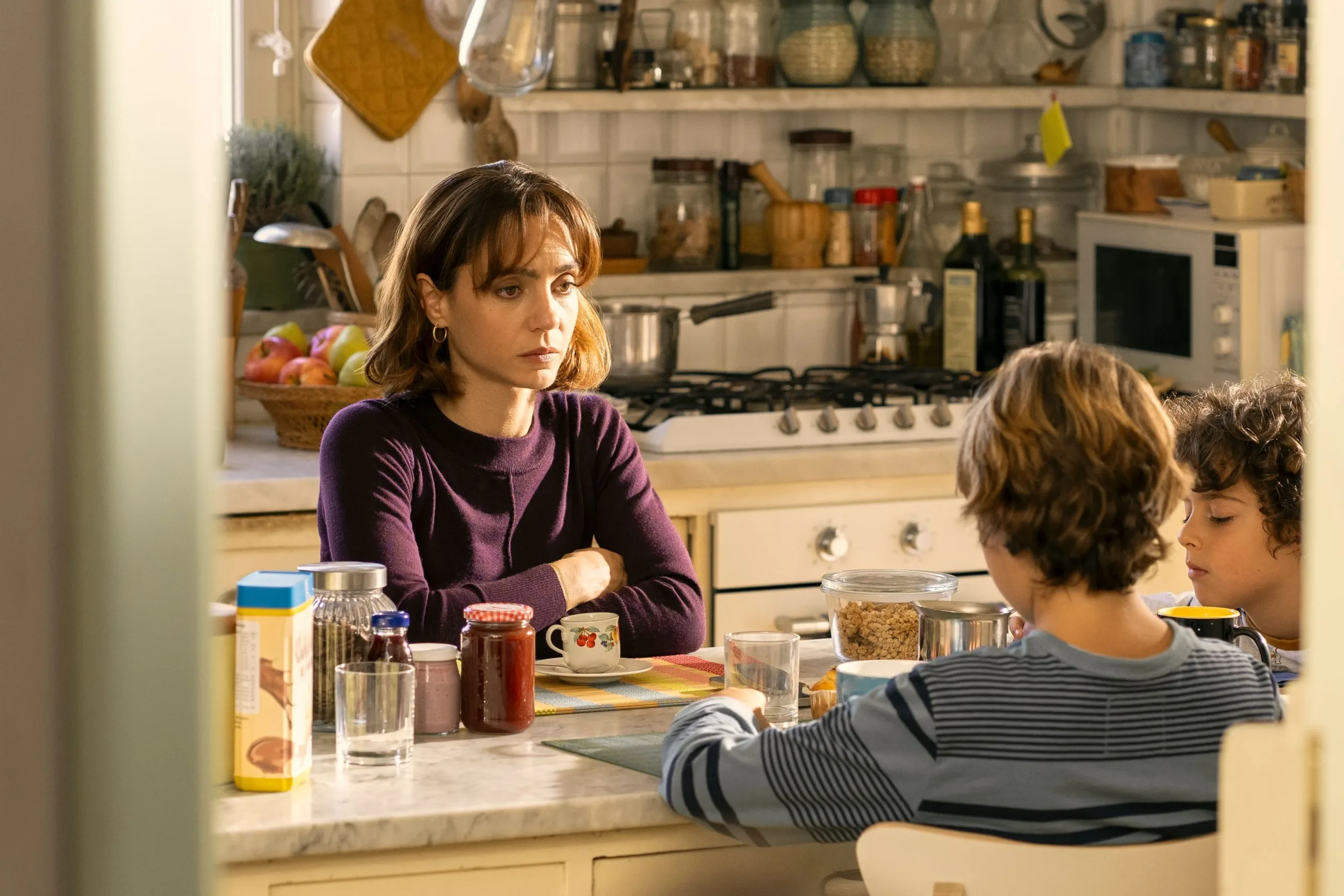Claudio Cupellini’s My Family lands on Netflix as a six-episode Italian dramedy that treats mortality like an old friend over a late-night espresso. Eduardo Scarpetta embodies Fausto, a man who learns his days are numbered and then spends each precious moment crafting voice-memo farewells for two sons, a protective mother, a wayward brother, and two steadfast confidants.
Each installment bears a character’s name and hops among three eras—Fausto’s whirlwind courtship, the moment his illness is revealed, and the chaotic present—forming what I’ll call a “chronomemorial framework.” This structure keeps us curious (no chance to drift off mid–tearjerker) and deepens our bond with every figure on screen.
Cupellini balances gentle humor—think a lighthearted jibe at Italian formality—with scenes of unvarnished emotion. Warm laughter flickers in crowded family dinners, then subsides into quiet grief when Scarpetta’s voice cracks. That swing between levity and honesty gives the show an edge, steering it clear of mawkish clichés. Directed with a philosopher’s eye, My Family asks what it means to leave ripples rather than footprints.
Temporal Threads & Pacing Currents
Each of the six episodes carries a character’s name as its title, a modest flourish that anchors us to a single perspective even as the plot unfurls across three timeframes. We drift into Fausto’s early romance with Sarah, then snap to the instant his world fractures under terminal diagnosis, before landing in the turbulent present where grief and hope collide. This triptych of eras mirrors how memory itself fractures—never linear, always partial.
Shifts among past, reveal and aftermath keep tension taut. One moment we’re swept away by the thrill of first love; the next, we brace for the silent dread as Fausto’s laughter fades into whispered vulnerabilities. Scene after scene, character motives glow faintly at first, then burn clearer only when we see them through different lenses. Scarpetta’s Fausto, in a flashback, cracks a joke about oxygen tanks like he’s ordering double espressos—lighthearted on the surface, but poignantly layered once you know what’s coming.
Pacing here feels organic. Episodes with heavier revelations are followed by bursts of familial banter around dinner tables, where even a casual insult about Valerio’s sobriety lands like a lifeline. At times the story races; moments later it pauses—an extended gaze at Rome’s rooftops or a pregnant silence when a son asks why Daddy won’t return. Those elongations grant space for emotion to ferment, yet never drag.
By the fourth chapter, the rhythm grows familiar—intensity, respite, intensity again—while subtle variations ensure it never repeats. Episode five stretches further into reflective quiet; episode six tightens its focus on Fausto’s final messages, heightening urgency. This modulation of tempo gives each installment its own heartbeat, inviting viewers to settle in and then jolt awake, time and again.
Heirs of Memory: Faces in the Mosaic
Scarpetta’s Fausto appears at once buoyant and broken—an oxymoron that powers his arc. In flashbacks he flirts with Sarah like a carefree poet; in the present he breathes through an oxygen mask, quipping as if ordering espresso. His voice-memo “echo bequests” serve as a window into hopes deferred and regrets sharpened by impending absence (a modern riff on last letters of bygone eras).
Valerio, played by Massimiliano Caiazzo, embodies a paradox of duty and defiance. He’s the archetypal older brother driven by responsibility yet sidetracked by his own impulses—an embodiment of shifting masculine roles in economies where traditional provider-status has lost its footing. Their exchanges recall sibling rivalries in postwar dramas, where love and competition share a single heartbeat.
Vanessa Scalera’s Lucia channels Neorealist matriarchs, alternating between fierce protectiveness and simmering resentment. One moment she offers maternal balm; the next, a glare that could scorch Rome’s cobblestones. Her performance underscores how grief can fracture even the strongest bonds, asking us to consider how mothers carry both lineage and unspoken burdens.
Cristiana Dell’Anna’s Maria and Antonio Gargiulo’s Demetrio round out this “found family.” Maria moves from watchful friend to emotional anchor, while Demetrio’s awkward loyalty (he shuffles into Fausto’s hospital room like a guilty spectator) reminds us that friendship can shoulder grief when blood ties falter. Together they sketch connectivity in an age of atomized networks.
Fausto’s sons, Libero and Ercole, feel uncannily present. Jua Leo Migliore and Tommaso Guidi capture childhood’s raw honesty—one moment they lounge on a bed dancing to punk rock; the next they puzzle over their father’s fading voice. Their innocence cuts through adult angst with a truth that demands attention.
On-screen chemistry grounds each pairing. Romantic exchanges possess a lived-in warmth; family dinners pulse with playful insults that sting like real life; friendships offer sparks of kinship forged under duress. This ensemble doesn’t merely share space—they inhabit a single emotional ecosystem, each portrait contributing to a larger portrait of love in extremis.
Echoes of Loss and Laughter
Grief in My Family is elastic—stretching from sharp denial to brittle acceptance, snapping us back into uncertainty. One character insists there’s nothing wrong; minutes later, tears stain a wedding photo. Loss is unpredictable.
The voice-memo device becomes a “memoirrific” thread, each P.S. I Love You–style recording a tether between life and absence. Scarpetta’s calm declarations of love morph into confessions of regret, and those audio relics ground the narrative (they’re more than sentimental gimmicks—they’re emotional scaffolding).
Love appears under multiple guises. Romantic devotion flickers in young Fausto’s rush to win Sarah’s heart. Parental love emerges as a fierce pledge to protect Libero and Ercole from an unfair future. Fraternal bonds twist between trust and betrayal when Valerio faces his own demons. Friendship, too, plays its part—Maria and Demetrio step up as surrogate pillars, reminding us that chosen kin sometimes matter most.
Moments of levity puncture tragedy. At a funeral gathering, a character’s off-hand remark about missing pastries yields a genuine chuckle (and then it hits you in the gut). One episode centres on an impromptu dance in the hospital corridor—two steps of joy amid sterile walls. These flashes of humor reinforce resilience. They whisper that joy can survive even where sorrow looms.
Finally, existential questions gather like storm clouds. What remains when voices fall silent? Memory itself becomes a character—fragile, fragmentary, vital. We’re urged to consider mortality not as an endpoint but as an invitation to imprint our values on those who follow. A single day of voice memos radiates through years of lives altered by one man’s choice to speak from beyond. It’s both simple and unsettling.
Frames, Hues & Echoes
Claudio Cupellini’s eye for location frames Fausto against sunlit piazzas or sterile hospital corridors, each shot mirroring shifts in his inner world (a gesture that recalls Neorealist pioneers charting ordinary lives). Wide angles of Roman rooftops convey fleeting freedom; tight close-ups in muted hallways suggest the tightening grip of illness.
The visual palette shifts deliberately. Flashbacks glow in warm ochres and terracotta—memory’s own spotlight—while present-day scenes adopt cool grays and washed-out tones, implying emotional erosion. Family dinners bask in soft lighting, turning familiar rooms into sanctuaries even as tension simmers beneath.
Editing moves with whispered precision. Match cuts and gentle dissolves signal timeline leaps without jolting the viewer. A burst of laughter in 2013 dissolves into the mechanical hiss of an oxygen tank in 2024. Such transitions evoke memory’s blurred edges, creating what one might term a “rememory splice.”
Musical choices underscore the series’ dual nature. A spare piano motif haunts scenes of solitude; then punk rock invades the frame when Fausto dances with his sons to The Clash’s “I Fought the Law.” That contrast—classical restraint versus raw defiance—hints at life’s stubborn insistence on joy amid crisis.
Sound design grounds every moment. Children’s laughter echoes down narrow corridors; distant church bells punctuate moments of calm. And in scenes stripped of background hum, a single cough or sigh carries the weight of vanished days, reminding us that silence can be the loudest presence of all.
Locale as Lexicon
My Family winks at Italian dramedy traditions—family squabbles, heartfelt reunions—then remixes them into something fresh. It honors the genre’s penchant for close-knit clans without lapsing into melodrama. Here, grief and wit occupy the same table, much like the overlapping generations who gather around it.
Despite its Roman backdrop, the series speaks a universal tongue. The fear of loss, the bond between siblings, the awkward comedy of caregiving: these resonate wherever people try to piece life back together. Viewers need no subtitles for raw emotion.
Rome itself emerges as a co-star. Sunbaked piazzas, winding alleyways of Trastevere and the hush of century-old churches ground personal drama in communal memory. Locations become “emotioncartography,” mapping characters’ inner journeys onto familiar facades.
Dialogue blends colloquial Italian—sharp, affectionate—and occasional English lines from Sarah, underscoring cultural collisions. A simple “Ti amo” can carry the weight of centuries of art and longing. In one scene, a half-spoken phrase about “home” hangs between languages, revealing how identity shifts when borders blur.
By weaving place, tongue and tradition, the show suggests that family stories are both intensely local and endlessly portable—a reflection of how modern diasporas carry home in their hearts, wherever they roam.
Beyond the Last Memo
The final chapter tugs at unresolved threads—custodial drift between Libero and Ercole raises the question of who truly carries Fausto’s legacy. Maria’s evolving role feels poised for reinvention, her “storycatalyst” potential still unfurling. And Sarah’s hinted return could fracture fragile bonds—or fortify them in unexpected ways.
Season 2 might dig into Valerio’s sobriety struggle (a reflection of society’s uneasy reckoning with addiction) or chart Lucia’s path from resentment to reluctant matriarch. Demetrio, long relegated to the sidelines, may claim agency, rewriting his own narrative in the shadow of Fausto’s towering presence.
This series sets a new “rememory splice” standard. Its seamless time shifts and voice-memo structure may inspire international dramedies to stake bolder claims on non-linear grief narratives. Expect streaming platforms to harvest similar echoes of memory as living, breathing characters.
Viewers will debate Fausto’s choices: was leaving voice memos a gift or a burden? Who truly deserves his final words? If you could send one last message, to whom would you address it? Those questions spark community dialogue—online forums buzzing with theory and emotion. And that unscripted conversation becomes the show’s most enduring legacy, a living testament to stories that refuse tidy endings.
Full Credits
Director: Claudio Cupellini
Writer: Filippo Gravino
Producers and Executive Producers: Carlo Degli Esposti, Nicola Serra, Massimiliano Navarra, Marco Camilli, Margherita Chiti, Luigi Pinto
Cast: Eduardo Scarpetta, Vanessa Scalera, Massimiliano Caiazzo, Cristiana Dell’Anna, Gaia Weiss, Antonio Gargiulo, Filippo Gili, Jua Leo Migliore, Tommaso Guidi, Aurora Giovinazzo
Director of Photography (Cinematographer): Gergely Pohárnok
Editors: Michele Gallone, Chiara Griziotti, Alberto Masi, Giuseppe Trepiccione
Composers: Giorgio Giampà, Marta Lucchesini
The Review
My Family Season 1
My Family Season 1 achieves an emotional balance seldom seen: it threads laughter through sorrow, invites reflection through playful warmth, and roots personal grief in collective memory. Scarpetta anchors the series as a tender guide through fractured timelines and familial devotion, while Cupellini’s direction transforms Rome into a living canvas. This six-part journey leaves an indelible mark on both heart and mind.
PROS
- Engaging non-linear structure reveals character depth
- Scarpetta’s voice memos deliver emotional clarity
- Ensemble performances feel genuine and relatable
- Humor punctures tension with well-timed levity
- Rome’s scenery enriches narrative atmosphere
CONS
- Pacing slows in midseason episodes
- Some side characters receive minimal screen time
- Emotional beats occasionally follow familiar patterns
- Sarah’s backstory remains underexplored









































